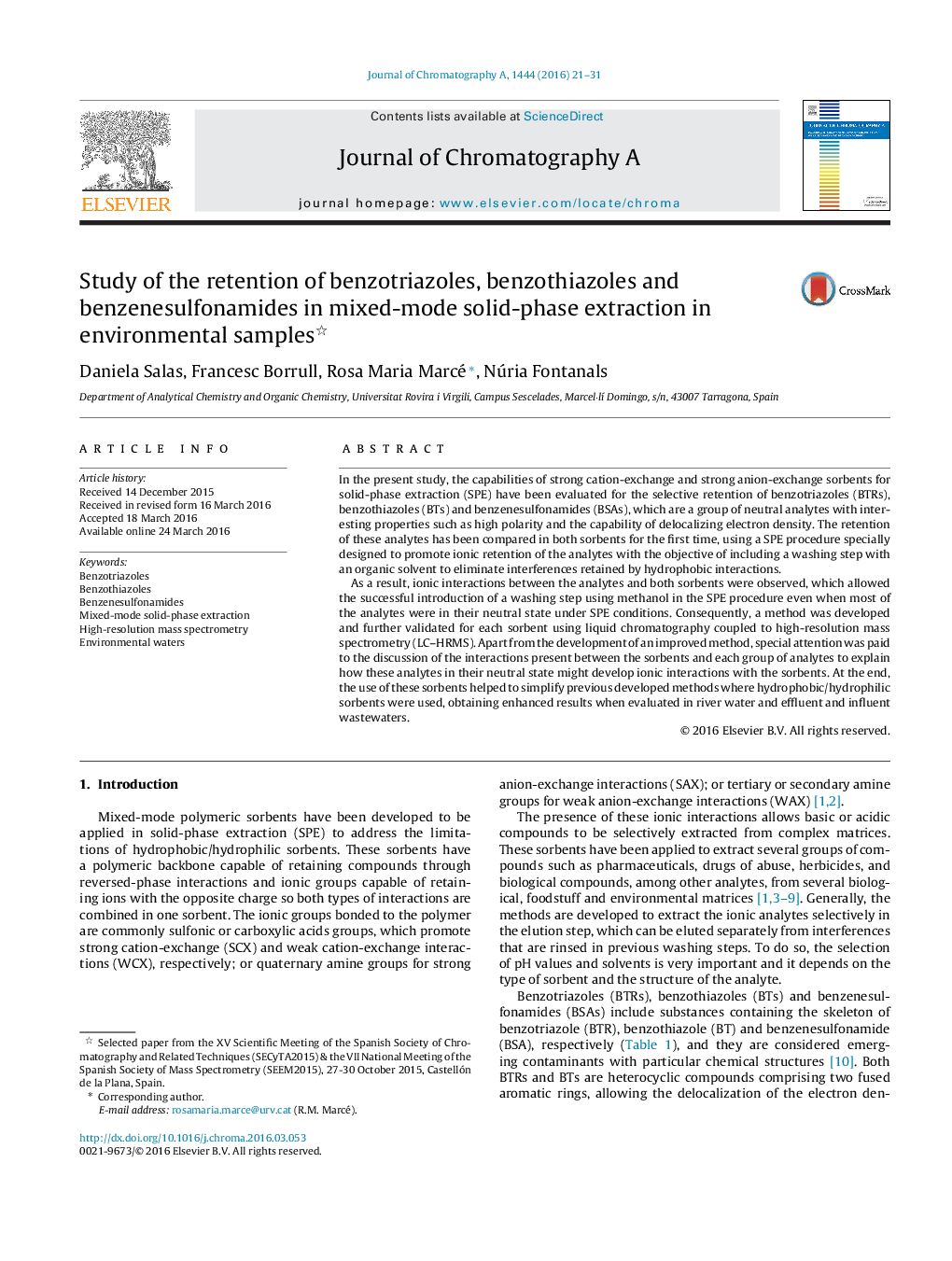| Article ID | Journal | Published Year | Pages | File Type |
|---|---|---|---|---|
| 1198538 | Journal of Chromatography A | 2016 | 11 Pages |
•Benzotriazoles and benzothiazoles were selectively extracted in mixed-mode sorbents.•These neutral analytes showed ionic interactions with strong ion-exchangers.•Ionic interactions are promoted by induced charges in the analytes.•Two developed methods using cationic and anionic sorbents showed similar results.•Low matrix effect was obtained in environmental waters thanks to the washing step.
In the present study, the capabilities of strong cation-exchange and strong anion-exchange sorbents for solid-phase extraction (SPE) have been evaluated for the selective retention of benzotriazoles (BTRs), benzothiazoles (BTs) and benzenesulfonamides (BSAs), which are a group of neutral analytes with interesting properties such as high polarity and the capability of delocalizing electron density. The retention of these analytes has been compared in both sorbents for the first time, using a SPE procedure specially designed to promote ionic retention of the analytes with the objective of including a washing step with an organic solvent to eliminate interferences retained by hydrophobic interactions.As a result, ionic interactions between the analytes and both sorbents were observed, which allowed the successful introduction of a washing step using methanol in the SPE procedure even when most of the analytes were in their neutral state under SPE conditions. Consequently, a method was developed and further validated for each sorbent using liquid chromatography coupled to high-resolution mass spectrometry (LC–HRMS). Apart from the development of an improved method, special attention was paid to the discussion of the interactions present between the sorbents and each group of analytes to explain how these analytes in their neutral state might develop ionic interactions with the sorbents. At the end, the use of these sorbents helped to simplify previous developed methods where hydrophobic/hydrophilic sorbents were used, obtaining enhanced results when evaluated in river water and effluent and influent wastewaters.
